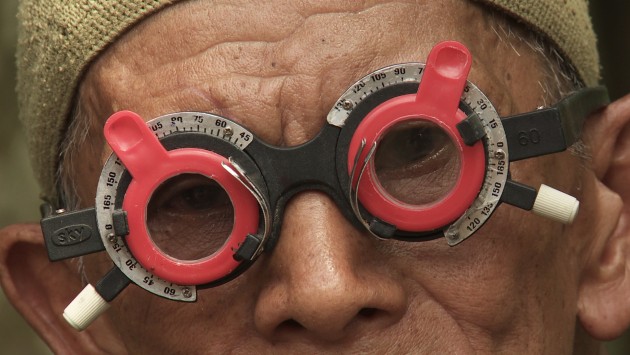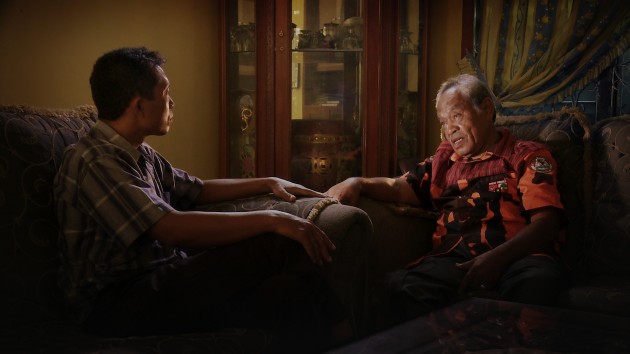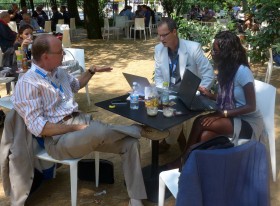On the Power of Forgiveness

The story of this documentary shows how a man, Adi, today a village optometrist, accompanied by director Joshua Oppenheimer, searches the murderers of his brother who died during the political oppression that led to the extermination of millions of citizens in Indonesia in 1965-66. We become witness of a noble-mindedness almost non-existent in our times, and of a complete research of the simple truth. The film is a sequel to Oppenheimer’s “The Act of Killing” from 2012, which portrayed the perpetrators, and it is a masterpiece.
Adi’s family as well as many others in Indonesia were the subject of a hate driven only by selfish desires and ambitions pursued by a political class in search of power. The surviving son tries to determine the truth. He confronts the men that killed his brother, the men who killed in the name of ideological, moral and cultural beliefs.
We are told that the victims were communists. In fact, in the very first scene of the film, a young Indonesian tells an American journalist inquiring about the facts how many prisoners were handed over to the army voluntarily, even asking the soldiers to kill them by accusing them to be communists. Obviously this accusation is a fairy tale lacking any reason or proof.
Adi is certainly the ideal of a person much sought after and praised by various religions as he is never touched by feelings of hatred or rancor. Personally I was struck not so much by the movie itself but by this man who is an example of dialogue between people (not necessarily of different religions), of sound moral values, of a humanity which seems to be almost unreal. How many of us would be able to stand in front of the killer of our brother and listen without going berserk in face of the barbaric murder of a relative of ours? Especially when they show no sign of repentance, of human compassion. Instead they are annoyed when they are questioned.

Adi does not seek revenge, nor does he try to have the killers sentenced by the law. Instead, he simply is looking for the essence of humanity. Only once one of the perpetrators apologizes after hearing about the many victims. It is the only moment in which we see the bright eyes of the protagonist, and we understand that from the beginning he was looking for a sign of repentance.
Oppenheimer’s film invites us all to re-evaluate what are the really important things, and to re-evaluate our sense of justice. And more, to consider the different paths of the law and of forgiveness. I believe the film’s answer is given by the mother who survived the bloodshed: she appeals to that which is divine justice, seeking for a peace that she had never had so far.
The spiritual experience the film offers to the audience does not relate to any specific religion. It is rooted in the human experience itself, in the humanity we live in, including that very often we forget why we are looking for something that transcends our being human. I think however this film explains and reminds us of how much we are human beings, as it is possible to forgive even in our human condition. There is no need to rise to a higher level before succeeding. The rise of spirituality in Adi remains veiled, but it certainly occurs when the daughter of a soldier recognizes the mistake of her father, and asks for forgiveness for him. Calling Adi at that point his brother.
The humanity of this film struck me, and I believe that was the message the director wanted to get across to his audience. There is the saying that to err is human and to forgive is divine. The film shows us that this is far from being the truth. Adi is a man of flesh and blood just like us who throughout the film nothing but searches for the truth, for repentance, and who in front the killers has the courage and the heart to forgive.
This essay is a tribute, a thanks to the director and his hero for having reminded us, the audience, that we are human, not because we make mistakes but because one is able to forgive, and so are we.

